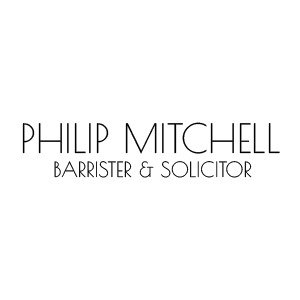Best Drunk Driving Lawyers in Wellington
Share your needs with us, get contacted by law firms.
Free. Takes 2 min.
List of the best lawyers in Wellington, New Zealand
About Drunk Driving Law in Wellington, New Zealand
In New Zealand, including Wellington, the laws about drunk driving are strict. If you are aged 20 years or over, you are legally allowed to drive with a breath alcohol limit of 250 micrograms per litre of breath or a blood alcohol limit of 50 milligrams per 100 millilitres of blood. For those under the age of 20, the limit is zero. It's important to remember that breaking these laws can incur significant penalties, such as fines, imprisonment, or loss of your driver's licence.
Why You May Need a Lawyer
Legal counsel can support you in cases where you're accused of drunk driving. Notably, they can assist you in understanding your rights, the charges against you, and the legal implications of those charges. In situations where you're wrongfully accused or when the charges are severe, having a lawyer is practically necessary. Additionally, a legal professional can help you navigate the court system and ensure a fair trial.
Local Laws Overview
Drunk Driving in New Zealand falls under the Land Transport Act 1998. The legal alcohol limit varies depending on the driver's age. If you're aged 20 or over, the breath alcohol limit is 250mcg per litre of breath, and the blood alcohol limit is 50mg per 100ml of blood. For those under 20 years old, a zero alcohol limit applies. Penalties for drunk driving can include fines, disqualification from driving, and potential imprisonment.
Frequently Asked Questions
What are the penalties for drunk driving in Wellington, New Zealand?
Penalties vary depending on the situation, but can include fines, loss of your driver's licence, community work, or imprisonment.
Can I refuse to participate in the tests the police asked me to undergo for drunk driving?
Refusing to undergo a breath, blood or impairment test when directed by police is considered an offence and may result in a criminal charge, which carries the same penalties as those for drunk driving.
What are the penalties for repeat drunk driving offenders?
Repeat offenders will face larger fines, longer disqualification periods, and possibly even jail time. These penalties increase for each subsequent offence within five years.
Can I drive after having a few drinks?
It's better to avoid driving after consuming alcohol. The amount of alcohol it takes to impair one's ability to drive varies from person to person. To ensure your safety and the safety of others, it is always better not to drink and drive.
Do I have the right to legal representation if charged with drunk driving?
Yes, you have the right to legal representation. If you can't afford a lawyer, you may be eligible for legal aid.
Additional Resources
For further help and information, you can contact the following:
- New Zealand Transport Agency (NZTA)
- New Zealand Police
- Community Law Wellington and Hutt Valley
Next Steps
If you require legal assistance related to a drunk driving charge in Wellington, the first step is to engage a lawyer who specializes in traffic offenses. Note down all details of the incidents leading to the charge, as well as any other relevant information before your first legal consultation. Meanwhile, avoid discussing your charges openly until you've obtained legal advice. If you cannot afford legal advice, contact Community Law Wellington or legal aid, where you may be able to get free legal help.
Lawzana helps you find the best lawyers and law firms in Wellington through a curated and pre-screened list of qualified legal professionals. Our platform offers rankings and detailed profiles of attorneys and law firms, allowing you to compare based on practice areas, including Drunk Driving, experience, and client feedback.
Each profile includes a description of the firm's areas of practice, client reviews, team members and partners, year of establishment, spoken languages, office locations, contact information, social media presence, and any published articles or resources. Most firms on our platform speak English and are experienced in both local and international legal matters.
Get a quote from top-rated law firms in Wellington, New Zealand — quickly, securely, and without unnecessary hassle.
Disclaimer:
The information provided on this page is for general informational purposes only and does not constitute legal advice. While we strive to ensure the accuracy and relevance of the content, legal information may change over time, and interpretations of the law can vary. You should always consult with a qualified legal professional for advice specific to your situation.
We disclaim all liability for actions taken or not taken based on the content of this page. If you believe any information is incorrect or outdated, please contact us, and we will review and update it where appropriate.








